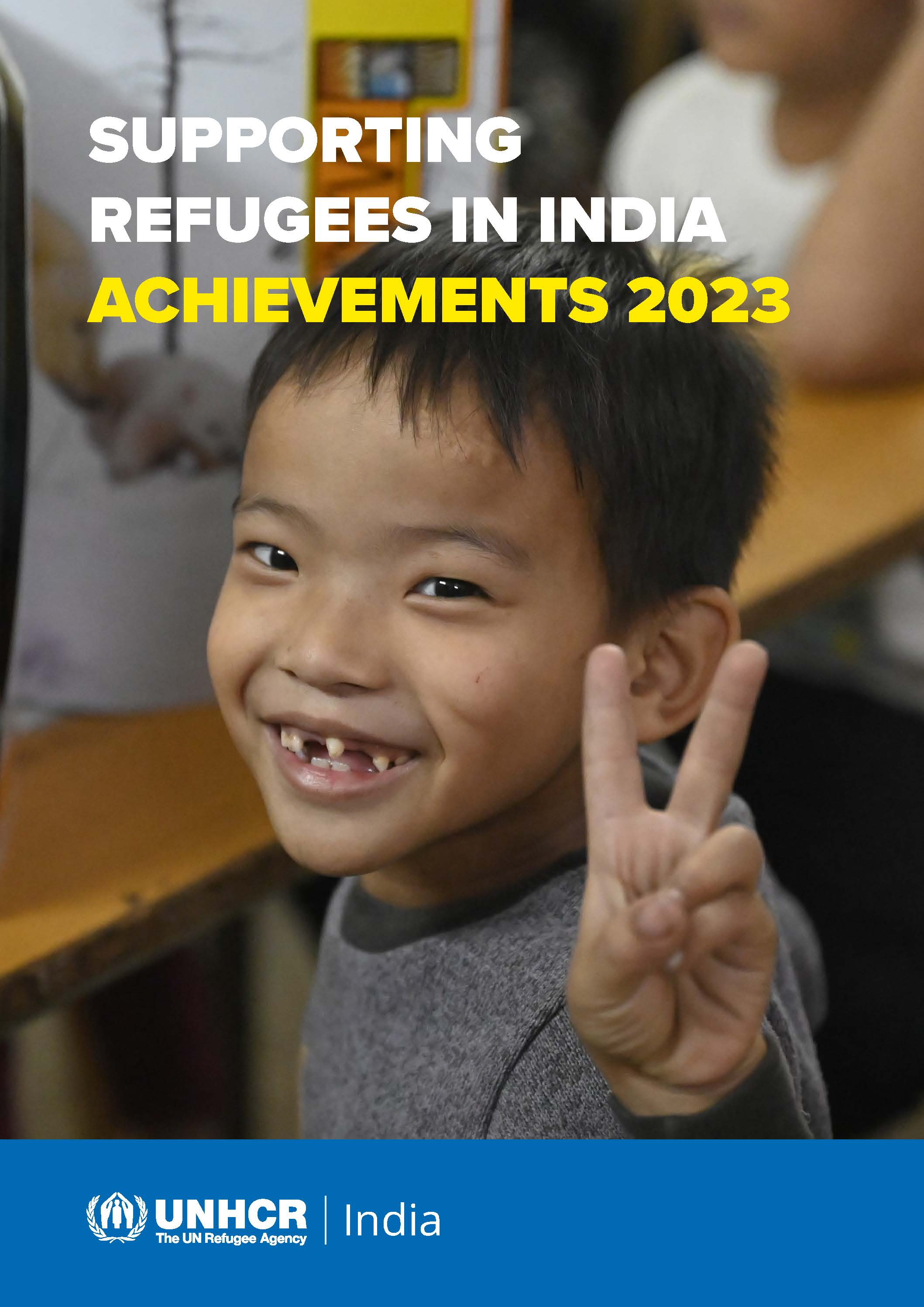UNHCR Global Appeal 1999 - The Republic of Moldova
UNHCR Global Appeal 1999 - The Republic of Moldova
Basic Facts
What we do
Build the capacity of Moldovan Government departments dealing with refugees and internally displaced persons to cope with an increasing number of asylum-seekers; support local NGOs who are working with UNHCR to provide assistance to persons of concern to the Office; promote international refugee law; and rehabilitate communal buildings housing the most vulnerable persons displaced by the Transdnistria conflict.
Who we help
Approximately 720 asylum-seekers and 6,000 internally displaced persons.
Our requirements
US$ 653,400
Our office
Chisinau.
Our partners
Ministry of Interior, Save The Children Fund, Support-Plus ("Sprijin-Plus"), Moldovan Centre for Human Rights, Law Centre of The University Advocates, Foundation for Sustaining Parliamentarianism and Democracy, Independent Society for Education and Human Rights (SIEDO), Helsinki Citizens' Assembly.
Background
Since it became independent in 1991, the Republic of Moldova has undergone some profound transformations from being part of a totalitarian State to an independent, democratic country and from having a centrally managed economy to adopting a market economy. Nation-building has been made even more difficult because of the conflict in Transdnistria. Fighting began in 1992, when separatists declared the area between the Ukrainian border and the Dniester river an independent entity. As a result of the conflict, some 56,000 persons fled to Ukraine and 51,000 became displaced within Moldova. Since a cease-fire was declared, most displaced persons have returned to their pre-war homes in areas not controlled by the Government, though some 6,000 persons settled in other parts of Moldova. Because of the conflict, government authorities are unable to control the eastern border to Ukraine, or to ensure respect for human rights in the areas they do not control. As a consequence, there are growing numbers of clandestine transit migrants in the country and individuals still flee the areas outside government control.
Objectives
In addressing the basic protection and assistance needs of refugees and other persons of concern, UNHCR works to:
- strengthen the capacity of the Moldovan Ministry of Interior and Ministry of Labour, Social Protection and Family to address migration issues and promote understanding and awareness of refugee law and the principles of non-refoulement;
- monitor persons of concern to UNHCR and attempt to find durable solutions for them including voluntary repatriation and, where possible under national law, local integration. A growing number of migrants from Afghanistan and the Middle East are de facto refugees;
- assess the vulnerability of the approximately 6,000 internally displaced persons from Transdnistria who are still awaiting a durable solution, and provide them with assistance, when necessary, through small income-generating projects, upgraded shelters and improved sanitation in their communities; and
- in cooperation with the authorities and other concerned international organizations, promote respect for basic civil and social rights of refugees and displaced persons as defined by the CIS Conference.
Protection
Most asylum-seekers and refugees in the Republic of Moldova are from Afghanistan, Iraq, the Islamic Republic of Iran and conflict areas in the CIS. UNHCR helped three individuals repatriate and will continue to assist persons of concern to return to their homes. Moldova is not yet a signatory to the 1951 Convention, but the Government is making progress in its efforts to address the issues of citizenship and asylum. The Parliament recently adopted a domestic Asylum & Stateless Persons Law and the President recently approved creation of a "Permanent Commission on Problems of Citizenship and Granting the Political Asylum". UNHCR and the United Nations Development Programme jointly support, both financially and technically, the Moldovan Human Rights Centre. The Centre promotes refugee law and the reduction of statelessness through round tables, conferences, public information activities and publications. UNHCR also supports local NGOs which provide ethnic tolerance education.
Assistance
UNHCR provides direct assistance to vulnerable asylum-seekers in the form of monthly cash allowances. In cooperation with local NGOs, UNHCR supports small income-generation projects in communities of internally displaced persons. UNHCR coordinates its activities with UNDP to ensure the compatibility of income-generation/credit schemes. With skills training in subjects like small-business management and marketing, and small grants given to the most needy refugees and internally displaced persons, a sense of self-reliance and self-sufficiency is fostered within the refugee and internally displaced populations.
Assistance to Children
In coordination with UNICEF, UNHCR will provide school materials to those schools in which refugee and internally displaced children are enrolled. UNHCR will also continue to support arts, culture and education campaigns that promote ethnic tolerance among children.
Constraints
Programme implementation is hobbled by slow-moving bureaucracies, local inexperience with issues related to refugees and internally displaced persons, and an unstable economy, which has been made even more so by the economic problems in the Russian Federation.
Budget US$
| Activities | General Programmes | Special Programmes |
| Domestic Needs/Household Support | 33,520 | |
| Health/Nutrition | 7,000 | |
| Shelter/Other Infrastructures | 158,080 | |
| Community Services | 10,300 | 14,220 |
| Education | 5,000 | |
| Income-Generation | 27,700 | |
| Legal Assistance/Protection | 100,180 | |
| Agency Operational Support | 18,900 | |
| Programme Delivery Costs* | 240,400 | |
| Sub-TOTAL | 415,300 | 200,000 |
| Administrative Support | 38,100 | |
| TOTAL | 453,400 | 200,000 |
| TOTAL GP + SP | 653,400 |
* Includes costs for protection, monitoring and coordination.



